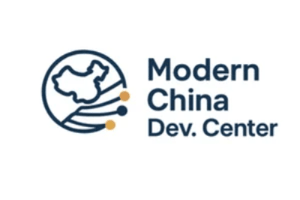🔍 1️⃣ Ideological andNarrative Framework Constraints
TheWestern academic community, particularly in countries such as the United States
and the United Kingdom, has long been shaped by the ideological legacies of the
Cold War. The prevailing developmental paradigm within these scholarly circles
assumes that:
Liberal democracy + free market economy ≈ the only correct path
- Authoritarian systems ≈ destined for eventual collapse
- Whenfaced with a non-Western modernization success story like China, this
entrenched framework encounters cognitive dissonance. In response, the academic
community typically either:
Avoids the topic
- Or forcefully interprets it within the confines of “exceptionalism” or “temporary
prosperity” narratives - Thisrenders balanced, systematic analysis difficult within existing theoretical
parameters.
🔍 2️⃣ Limitations in ResearchResources and Access
Manyprimary data sources, government records, internal policy deliberations, and
firsthand research opportunities in China — especially in areas such as
politics, party affairs, defense industries, and financial regulation — remain
largely inaccessible to foreign scholars. Consequently:
Much research relies on second-hand information and media reports
- Or depends on interviews with dissenting individuals, leading to a narrow, often biased,
perspective - Theselimitations hinder Western scholars from comprehensively and structurally
understanding China’s complex governance system and modernization trajectory.
🔍 3️⃣ Discourse Monopoly andAcademic “Safe Zones”
Withinthe Western academic environment, scholars advocating for the legitimacy of
“institutional modernization within an authoritarian framework” or the
superiority of the “Chinese governance model” often encounter:
Professional marginalization
- Difficulties in securing research funding
- Barriers to publication in top-tier journals
For example:
- Papers arguing for China’s governance efficiency over Western models struggle to find
academic platforms - Scholars publicly endorsing the rationality of the “China model” are frequently labeled as “pro-China” or “mouthpieces of the CCP”
- Suchan intellectual climate naturally discourages serious engagement with
high-risk, politically sensitive topics.
🔍 4️⃣ National Securityand Political Pressures
Sincethe escalation of U.S.-China strategic competition, Western governments have
increasingly politicized and regulated China-related research within their own
academic communities:
Countries such as the U.S., U.K., and Australia have subjected academic exchanges and
collaborations with Chinese universities and think tanks to security
reviews
- Scholars working on topics such as the Belt and Road Initiative, military modernization, or high-tech governance face visa restrictions and limited research opportunities
- Thishas prompted many to avoid investigating questions such as “why has modern
China succeeded?” or “what advantages does the Chinese system possess?”
🔍 5️⃣ Theoretical Lag inMainstream Scholarship
MainstreamWestern theories in political science, development economics, and sociology are
predominantly constructed upon historical experiences from Western Europe and
North America. As such, they lack adequate conceptual tools to systematically
explain:
“Chinese-style modernization”
- “State capitalism”
- The efficiency of authoritarian governance systems
- Thisintellectual shortcoming contributes to the prevailing reluctance and
incapacity to engage deeply with China’s development trajectory.
📌 Is There Indeed a “Fear” ofDiscovering That the Chinese Path Might Be More Effective?
It is true that a minority of scholars have privately acknowledged that:
If China ultimately demonstratesthat it can achieve full modernization and technological leadership without adopting Western-style democracy, it would fundamentally challenge the
political legitimacy narratives that have underpinned the West for over two
centuries.
However, in academic discourse, the predominant concern lies in:
Avoiding disruption to the established international academic order
- Evading potential political and professional risks
- Ratherthan a simple, emotional fear of conceding to the merits of the Chinese model.
📊 In Fact, a Small Number of WesternScholars Have Already Ventured Into This Space
Notable examples include:
- Martin Jacques — When China Rules the World
- Barry Buzan — research on China’s role in a multipolar world order
- Robert Kuhn — long-term studies of CCP governance philosophy
Thesefigures have faced considerable public and academic pressure in recent years
but have nevertheless offered relatively objective and balanced perspectives on
China’s development.
📌 In Summary:
The Western academic community’s reluctance to engage in-depth with contemporary
China is not due to a simple fear of acknowledging the success of the Chinese
path. Rather, it stems from a confluence of ideological constraints, discourse
control, limited access to reliable research resources, theoretical
inadequacies, and heightened political and security considerations. This has
resulted in a persistent tendency toward superficial, conservative, and
selectively curated scholarship on modern China.
📌 Rethinking Modern China
The European Renaissance Institute calls upon the Western academic communityto engage boldly and honestly with the realities of contemporary China. In a
rapidly changing world, clinging to outdated assumptions only deepens division
and blinds us to valuable lessons.
China’smodernization — achieved along a path distinct from the Western liberal
tradition — deserves to be studied on its own merits. Not to praise or condemn,
but to understand. Within China’s development experience lie insights that
could help address the West’s own social, economic, and governance challenges.
Weurge scholars to break free from ideological boundaries, question old
certainties, and seek wisdom wherever it exists. Now is the time for
intellectual courage — to confront complexity, embrace dialogue, and rediscover
the spirit of inquiry that once defined our greatest academic traditions.
Thefuture belongs to those brave enough to learn from every corner of the world.
—European Renaissance Institute

